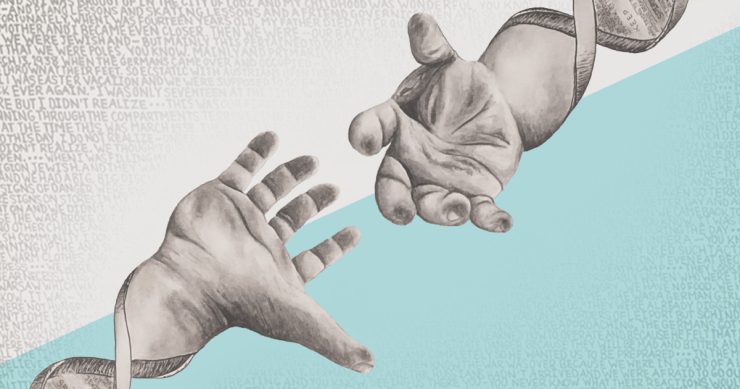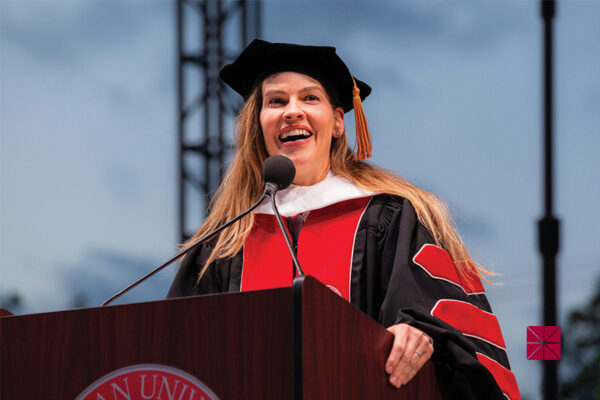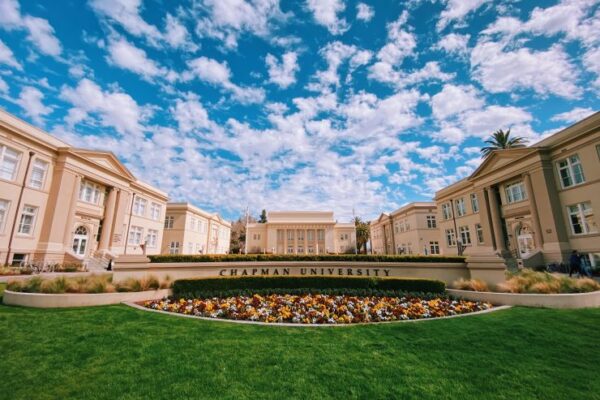As we approach International Holocaust Remembrance Day on January 27, Chapman University is eager to illuminate the 25th anniversary of the Holocaust Art & Writing Contest, one of the world’s largest efforts to keep the Holocaust memory alive in schools. The efforts resonate with recent research revealing critical gaps in Holocaust knowledge.
Why This is Important Locally and Globally:
- Ongoing Concerns: A 2023 report by Tel Aviv University and the Anti-Defamation League highlights a continued rise in antisemitic crimes in the U.S.
- Research Insights: the latest research from ADL’s Center for Antisemitism Research (CAR) links deficiencies in Holocaust education to heightened antisemitic beliefs, emphasizing the urgent need for global awareness.
- Alarming Statistics: Basic Holocaust knowledge is severely lacking, with nearly 6 out of 10 Americans under 30 unable to accurately identify the number of Jews killed. (CAR)
- Global Education Gap: Only 25 U.S. states and nine countries worldwide currently mandate Holocaust education. (CAR)
- Congressional Action: The 117th Congress (2021-2022) passed H.R.3515 — the Preventing Anti-Semitic Hate Crimes Act.
Chapman’s Impact:
- Holocaust Art & Writing Contest: A 25-year initiative by the Rodgers Center for Holocaust Education and the 1939 Society, the contest stands as one of the world’s largest efforts to preserve Holocaust memory with more than 5,000 students from over 100 public, parochial and private schools participating each year. The students engage witg with the survivor’s testimony in its historical context and craft a thoughtful and artistic response.
- Global Reach: In 2023, participation spanned 250 institutions across 32 states and 10 countries, with Poland hosting the largest group of schools. From Southern California to across the world 150,000 students have been reached; 2,000 educators engaged; 45 participating states, and 25 participating countries over the last 25 years.
- Marilyn Harran’s Insights: Marilyn Harran, Stern Chair in Holocaust Education and Director of the Rodgers Center, has played a critical role in spreading awareness. A professor of history and religious studies, Harran has helped honor Holocaust survivors for the last 25 years with the annual Art & writing contest.
Quotes & Interview Opportunities:
- “The students who participated in this year’s contest give us hope at a time when we very much need it,” Harran said. “Their entries affirm the power of memory and the strength of love not only during the Holocaust, but today as well. They also remind us of our responsibility to share our love and support with those in need, here at home and abroad.” – Marilyn Harran, Stern Chair in Holocaust Education and Director of the Rodgers Center.
- “There are so many different people who are touched by this contest,” she said. “It builds empathy in students. Because sometimes I think high school students are [very] unempathetic, like little kids. And we need to fix that.” – Abigail Stephens ‘26 (a student whose life has been profoundly impacted by the program).
The 25th Holocaust Art & Writing Contest will take place on March 15, 2024.
###
The Rodgers Center for Holocaust Education
The Rodgers Center for Holocaust Education, initially a single course, has grown into a comprehensive program within a private university, making it a standout in the United States. Beyond traditional classroom instruction, the center enriches students’ academic experiences with a diverse co-curricular program, offering lecture series. These events serve as a platform for esteemed scholars, visionary filmmakers, inspiring Holocaust survivors, and advocates for justice and human rights to share their insights and stories. The Holocaust Memorial Library, with permanent and rotating exhibits, sheds light on the individual lives affected and tragically lost during the Holocaust, featuring photographs, documents, oral histories, and a notable collection that includes a first edition of The Diary of Anne Frank in Dutch, along with reference materials supporting Holocaust research in its historical context.




